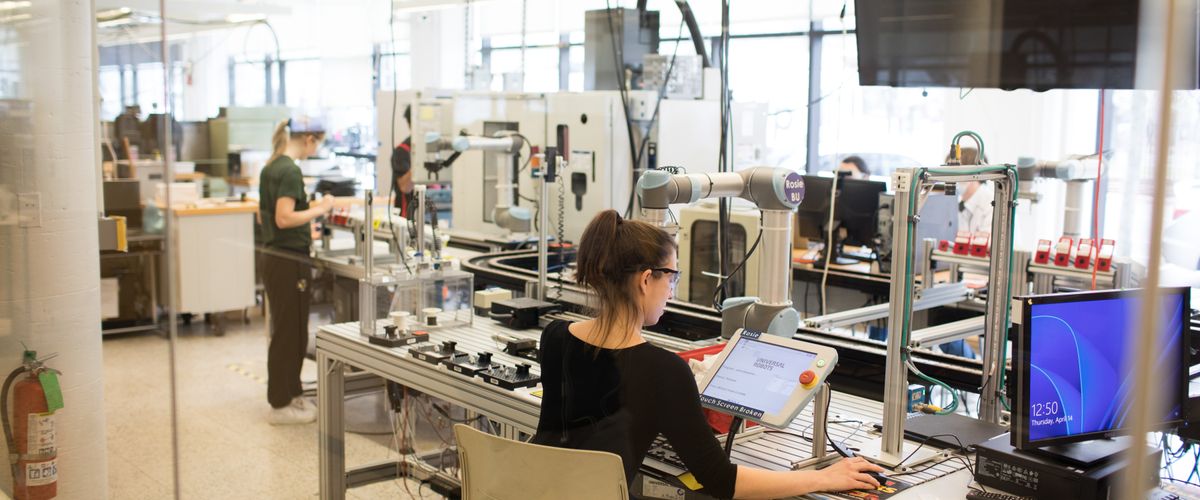News
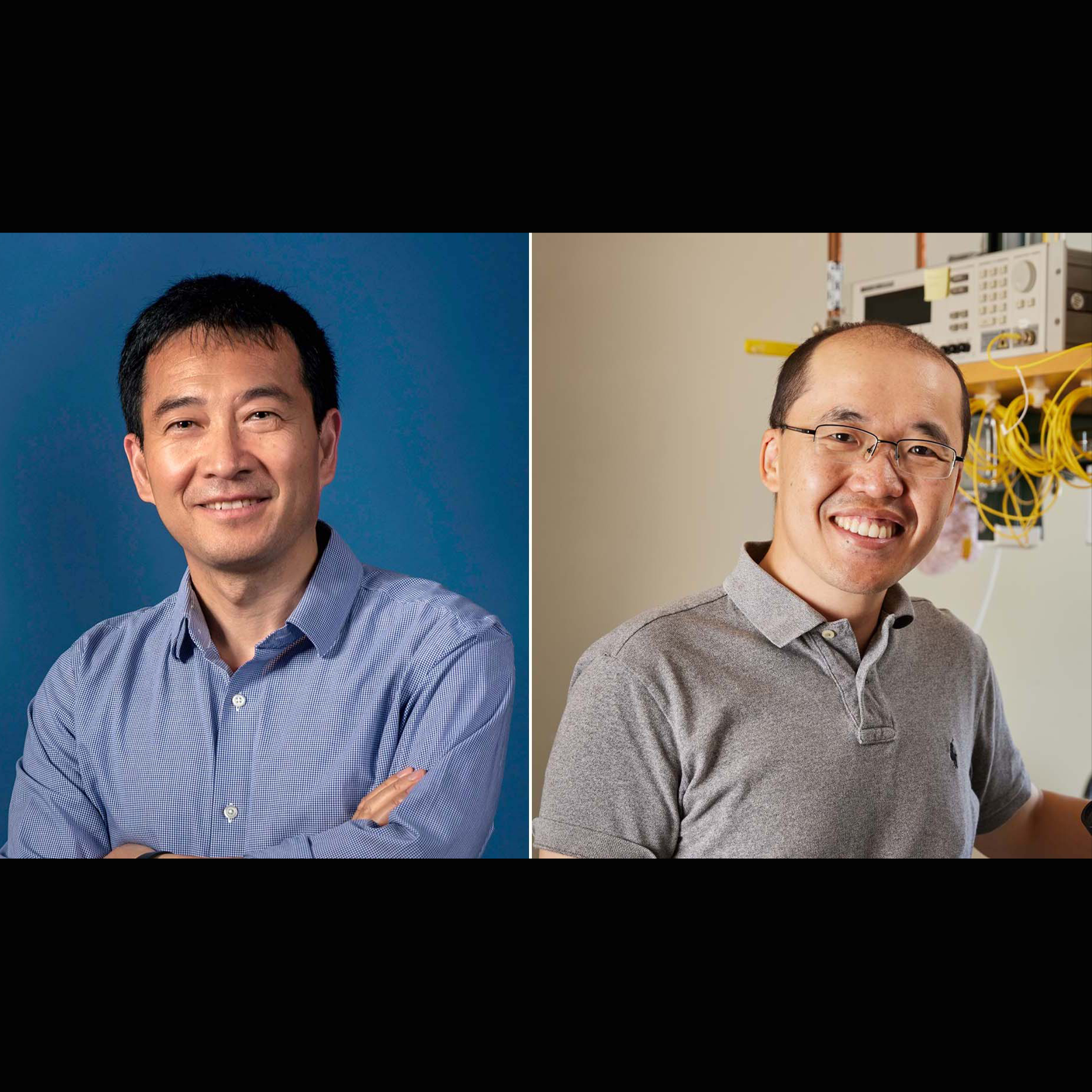
BU Researchers Receive over $1 Million Each in Funding from the Chan Zuckerberg Initiative
Furthering dynamic imaging research. More
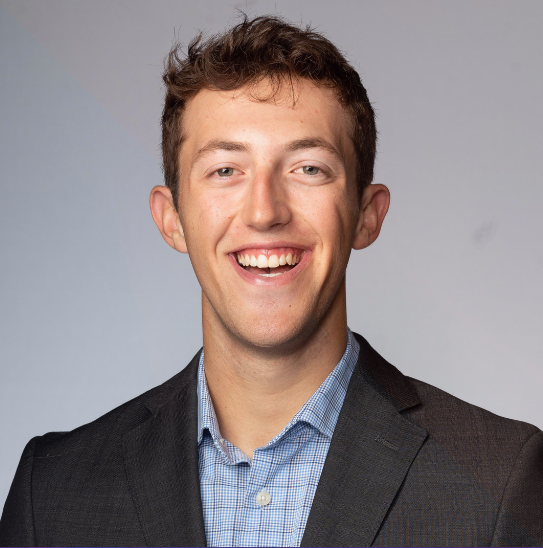
Mentoring: Preparing for Future Success
"It’s great to have someone to look up to,” says Noah Robitshek (ENG’ 25). “The impact is astronomical.” More

The Brain Trust’s Newest Additions
The Department of Electrical and Computer Engineering welcomes new faculty members Associate Professor Archana Venkataraman and Assistant Professor Kayhan Batmanhelich. More

Chen Elected NAI Fellow
Recognition for pioneering cures for heart attacks, liver disease, and more. More

Programmable Bacteria: Building the Biocomputing Future
Working across disciplines and institutions, a team of engineers is creating microscopic living devices to decontaminate drinking water. More
This Bizarre Looking Helmet Can Create Better Brain Scans
A breakthrough with the potential to revolutionize medical imaging. More

Extraordinary Control: Professor Paschalidis Elected IFAC Fellow
Recognition of his work on control of network systems, optimization and robust learning. More

Materials Grant Reimbursement Recipients
The Division of Materials Science and Engineering awarded Professors Soumendra Basu (ME), Xi Ling (Chemistry), Roberto Paiella (ECE), and Joerg Werner (ME) $10,000 each in... More
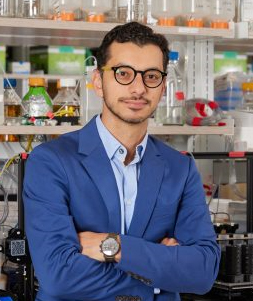
A Step Closer to Therapeutic Gene Circuits
New synthetic tool kit promises advances in gene and cell therapy. More
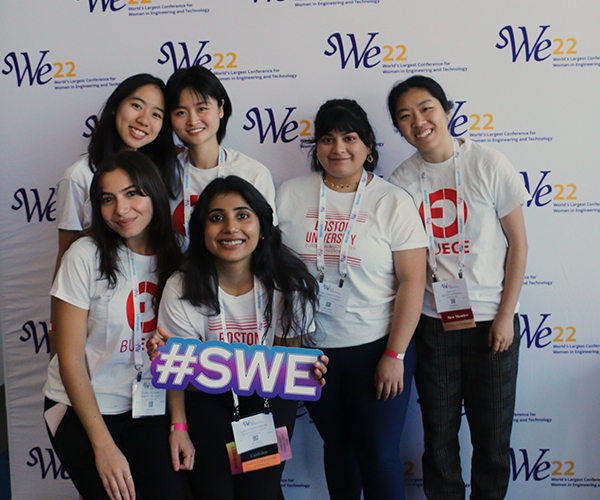
Opportunity Through Solidarity: ECE Women at (S)WE22
Earlier this fall, ECE sponsored six current students to attend the Society of Women Engineers’ WE22, the largest conference for women in engineering and technology in the world. More
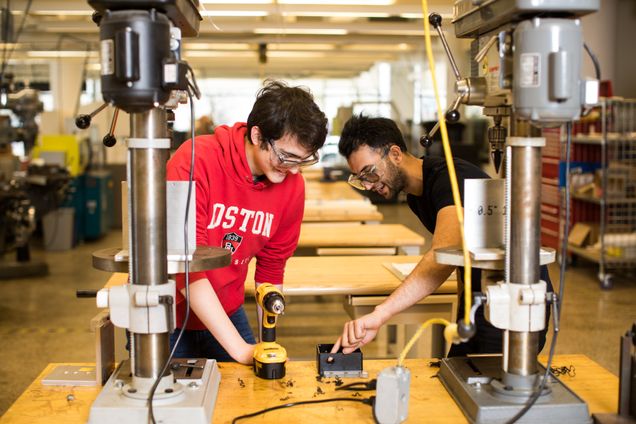
Endowment Funds Student Design Projects
Covers costs of supplies in maker spaces. More
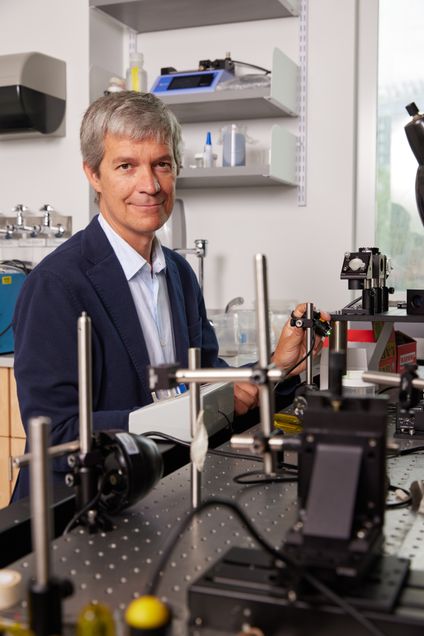
Prestigious Metcalf Chair Awarded to David Boas
"I’ll take this as a new challenge going forward," says Boas. More
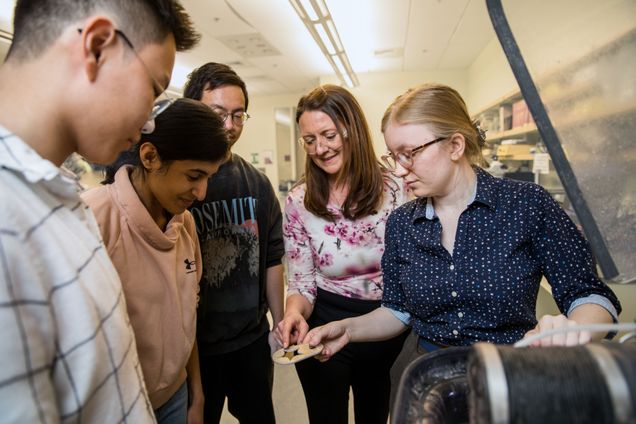
Pros Who Know Bolster EPIC Lessons
It’s one thing to design a pump that works. It’s quite another to choose the right materials, components, and manufacturing processes to ensure that thousands of identical pumps can be made efficiently, cost-effectively, and safely. More
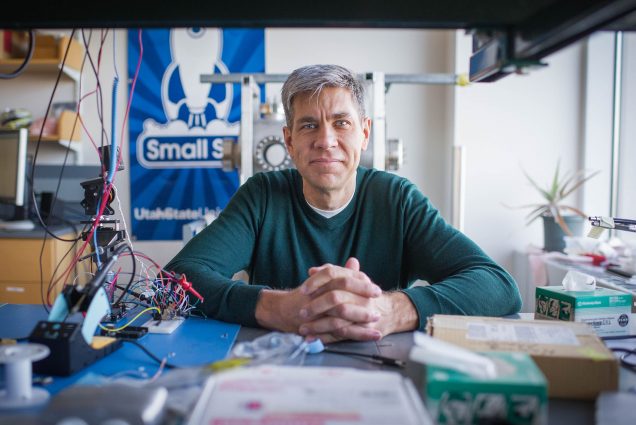
BU Astrophysicist Joins NASA Team to Study UFOs
Over the next nine months, Joshua Semeter will study footage of unidentified flying objects to help figure out their origin More
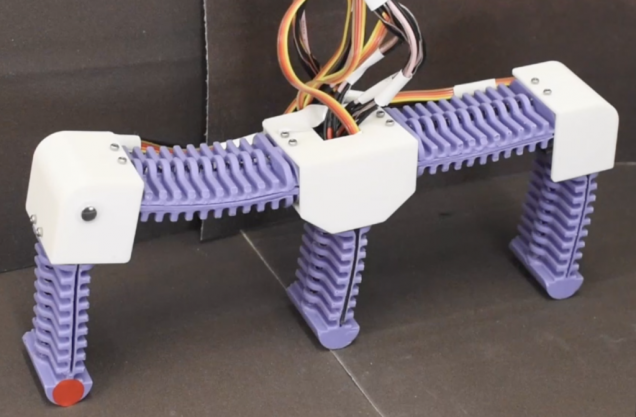
Sabelhaus Research: Advancing the Safety of Soft Robots for Human Interactions
The emergence of soft robots will enable safe human interactions which will allow robots to assist in the industrial, medical, automotive and space industries. College of Engineering Professor Andrew Sabelhaus (ME, SE), has been working on making soft robots safer to improve these human interaction tasks, in areas such as medicine, as well as explore difficult or dangerous locations. His work will help improve the design of many other soft robots. More

Does Twitter, under Elon Musk, Need Government Regulation?
“Platforms should self-police and enforce their own terms of service,” says ENG expert. “When this doesn’t happen, the platform stops being useful to legitimate users.” By... More

What Happened to the Robots in BU’s COVID-19 Testing Lab? They’re Getting a New Mission
An automated wet lab built by biomedical and electrical & computer engineers is opening up its facilities to researchers from across BU. More
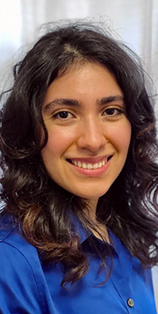
Lifting Up Leaders
Robotics students earn Amazon Day One Fellowships This fall, two Boston University College of Engineering graduate students arrived on campus as Amazon Day One Fellows, gaining... More
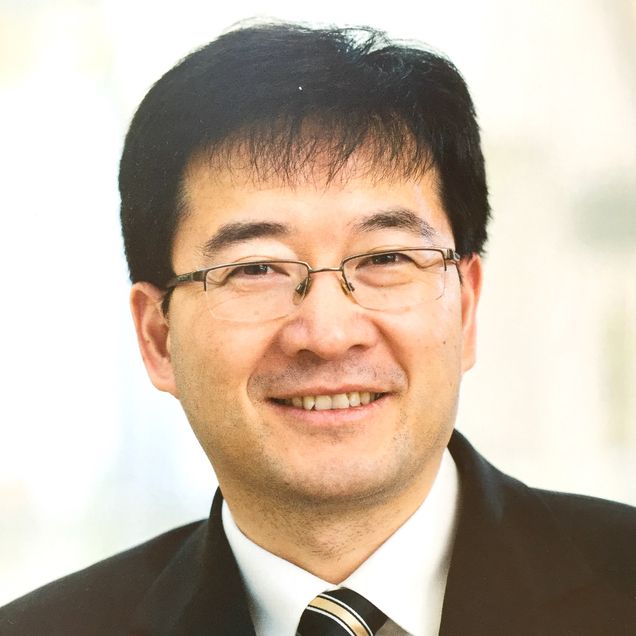
Seeing a Way to Combat Cancer
In the fight to treat ovarian cancer, innovative chemical imaging techniques developed by Professor Ji-Xin Cheng (ECE, BME, MSE) are fast becoming valuable tools, as reported in two high-impact journals in the space of two months. More

MADE with Machine Learning: Utilizing AI to Design the Next Generation of Semiconductor Devices
With the help of advanced, physics-informed machine learning (PIML) techniques, Professors Enrico Bellotti & Luca Dal Negro are setting out to transform the status quo of electronic device design, with the support of a $2.5M grant from the Army Research Office. More
